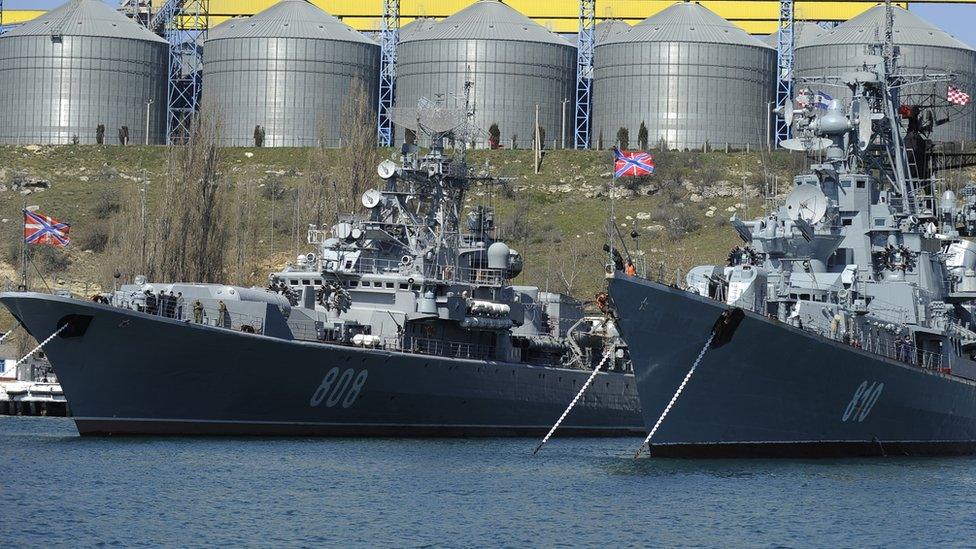EU extends Russia sanctions over Crimea annexation
- Published

Sevastopol in Crimea is a key naval base for Russia
The EU has extended for another year the sanctions it imposed on Russia over its annexation of Crimea in March 2014.
The 28 EU members renewed a ban , externalon economic ties with Crimean businesses, including a block on EU tourism and investment in the Black Sea peninsula.
The annexation drew international condemnation. It happened after pro-Russian forces seized Ukrainian bases in Crimea and then held a referendum.
Other EU sanctions target top Russian officials over the Ukraine insurgency.
Crimea has a Russian-speaking majority, but the referendum organised by the new authorities there was deemed illegal by the West.
After the Crimea annexation, in April 2014 pro-Russian insurgents seized power in the Donetsk and Luhansk regions of eastern Ukraine. The EU, US and some other countries then ratcheted up their sanctions against Russia.
After the break-up of the Soviet Union in 1991 Russia retained control of the important Black Sea naval base in Sevastopol. But Ukraine had control of the rest of Crimea until the 2014 crisis.
